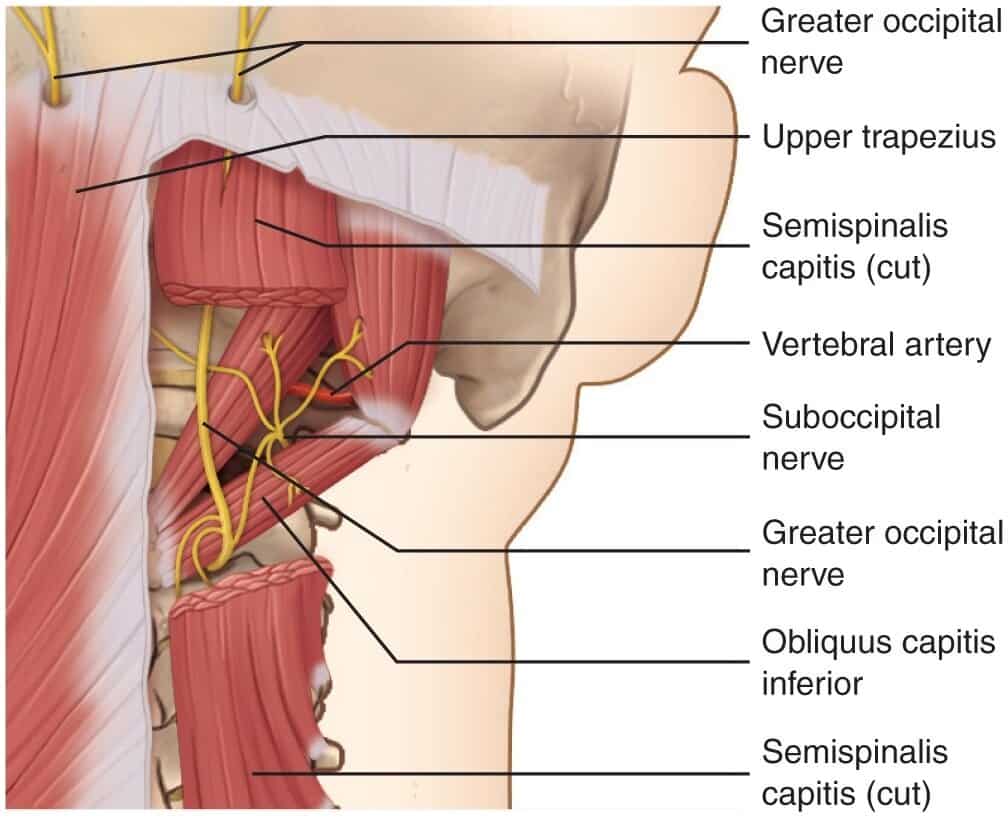What is Occipital Neuralgia? How much dangerous is this condition?
Occipital Neuralgia a condition in which nerves that runs from the top of the spinal cord through the scalp which is known as occipital nerves, are damaged or inflamed. In this condition, you might feel pain in the base of the skull or back of the head.
Mostly, People may confuse it with migraine or other headaches. The primary reasons is that symptom of occipital neuralgia, and other headaches are approximately the same. However, the treatment of these conditions is different.
Symptoms of Occipital Neuralgia:
This condition can cause a sharp, jabbing and electric shock in the back of the head and neck. The other symptoms of occipital neuralgia include:
- Pain on both or one side of the head
- Pain behind the eyes
- Tender scalp
- Pain when you move your neck
- Throbbing pain, aching and burning start from the base of the head and goes to the scalp

Causes of Occipital Neuralgia:
Occipital neuralgia can occur when the nerves are pressed may be due to injury, tight muscles, or inflammation. Several times, the doctors can’t find the substantial causes of this condition.
However, some underlying health condition can cause occipital neuralgia which includes:
- Trauma to the back of the head
- Osteoarthritis
- Tumors in the neck
- Cervical disk disease
- Gout
- Diabetes
- Blood vessels inflammation
- Neck tension and tight neck muscles
How it can Diagnose
The doctor can ask you several questions about health and condition. He may also ask about the previous injuries you’ve had. The doctor can perform a complete physical exam.
Your doctors can also recommend your MRI and blood test to elaborate on your condition.
Magnetic resonance imaging (MRI)
MRI is a diagnostic test used to take the three-dimensional images of the body structure.

Computed tomography scan (CT scan)
This is a diagnostic image created after the X-rays read by the computers. This test can show the shape and size of the spinal cord which can help doctors to know the root cause of the disease.
Remember in mind; the right diagnosis is the key to proper treatment. For example, if you are suffering from occipital neuralgia and you get the cure for migraine, your condition may worsen instead of getting better.
Treatment
As you know, the first step in the procedure is to relieve your pain. There are different techniques according to the cause and severity to reduce the pain.
You can use Opioid to treat the pain. You can also buy dihydrocodeine online to reduce and minimize the pain. If you buy online, you will not need the prescription of the doctor.
- Apply heat to your neck
- Rest in a quiet room
- Massage tight muscle
- Take OTC or over-the-counter
- Take antidepressants
An operation is rare, but in the severe condition, it might be the option if your pain isn’t getting better. Surgery may include:
- Micro vascular decompression – Your doctor can try to relieve the pain by finding and adjusting the blood vessels that are compressing your nerves
- Occipital nerve stimulation – Doctors may also use a device called, neurostimulator to send the electrical pulses to the occipital nerves. This technique can help to block pain message to the brain.
Read more at knowandask


